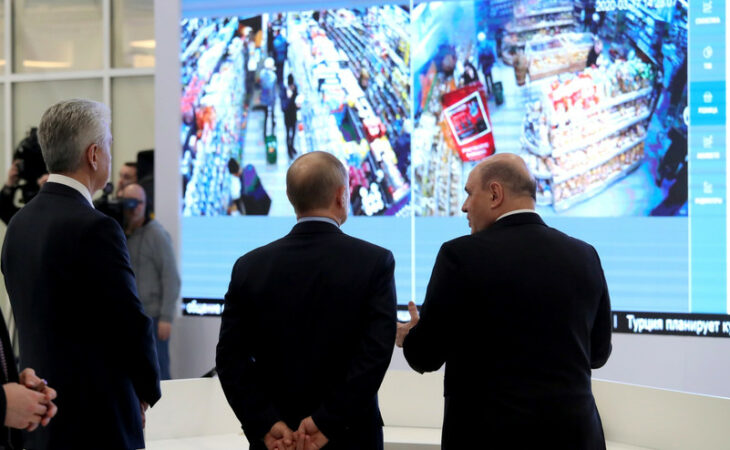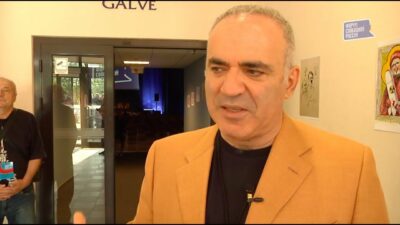Russia’s top coronavirus fake news stories were about Western plots – a theme also popular in Chinese disinformation. There was little hope of educating people…

Russia’s top coronavirus fake news stories were about Western plots – a theme also popular in Chinese disinformation.
There was little hope of educating people who believed that type of thing, propaganda experts said.
But some of the lies had “real-world consequences” that were hard to ignore.
“Scientists: coronavirus is weapon of biological warfare” on Russian website sputniknews.com was the top bogus story with 11,210 shares on social media platform Facebook.
“Sergey Glaziev: coronavirus – artificially created biological weapon” (6,567 shares) was second.
“The coronavirus Covid-19 pandemic: the real danger is Agenda ID2020” (2,733) came third.
Five other stories also received 1,000 or more shares:
“Is coronavirus an American weapon of biological warfare as Francis Boyle believes?” (2,250).
“Coronavirus, a weapon that fell from the sky for the United States in its fight against China?” (2,236).
“The plague gods: the geopolitics of epidemic and the bubbles of nothing” (1,815).
“Jackie Chan quarantined with suspected coronavirus – media” (1,149).
“Coronavirus was created in a laboratory: military expert” (1,051).
The Facebook engagement was calculated using Buzzsumo, an online tracking tool.
The numbers reflected Facebook activity between January and mid-March on a set of 110 bogus Russian stories which the EU foreign service recorded in its counter-propaganda database.
China also got in on the act, EU officials noted.
Chinese foreign ministry spokesman Lijian Zhao, for instance, retweeted a bogus Russian articleentitled “Covid-19: further evidence that the virus originated in the US”.
His retweet, on 13 March, was engaged with 45,000 times.
And the Russian article it referenced back to was eventually shared over 60,000 times on Facebook, Twitter, and Reddit, and linked to by 116 other websites.
The EU foreign service has more material on Russia than China because it has a special mandate to strike back at “Russian disinformation”.
But it accused both of them of “pollution of the information space” in a recent report.
Russian messages “advance a narrative that coronavirus is a human creation, weaponised by the West,” the internal EU report, seen by EUobserver, said.
They were meant to sow “confusion, panic, and fear” in line “with the Kremlin’s broader strategy of attempting to subvert European societies,” it said.
China focused on “censorship” of bad news and on showing the ruling party as “strong and successful in the face of the epidemic”, it added.
It is hard to measure the effect on people’s minds, but social media does give an insight.
“These shares are ‘not great, not terrible’. In other words, not sensational,” Lukas Andriukaitis, a propaganda expert at the Atlantic Council, a Washington-based think-tank, said.
“But that is already a significant amount of people who liked it, because the number of people who actually read the content would be significantly higher [than the number of Facebook shares],” he said.
The Chinese content was also creating a feel-good factor, according to Twitter.
Just 15 percent of Twitter posts geo-located in China in a recent sample voiced “negative” feeling on the situation compared to 29 percent in the wider world, the internal EU report said.
Extreme content
The White House, Brazil’s far-right leader, the Iranian regime, and some European politicians have also been accused of spreading disinformation.
Individual tweets by US president Donald Trump can get tens of thousands of online shares.
But Russia’s top fakes stood out for their extremism.
Russia’s top story claimed the US created the virus in a secret laboratory in Wuhan, China, where the outbreak began, as part of a biological warfare programme that included injecting “genetically modified viruses into three types of insects: fleas, cicadas, and aleurodides”.
The number two article claimed the US was using the virus to attack China and other “economic sectors they do not control”.
The third-top one said a Western cabal called ID2020, which met at the Davos Economic Forum, in league with “Big Pharma”, was force-vaccinating people with a substance which caused “a disease that hits only the next generation – or a brain debilitating agent, or a gene that renders women infertile”.
Some Russian stories also contained paranormal elements.
Open societies and free trade were to blame for the pandemic, Russian philosopher and mystic Alexander Dugin wrote in one of the top eight hits.
“The Liberal is the carrier of the coronavirus, its apologist … a little more time will pass, and liberals will be equated with lepers, infectious maniacs”, he said.
“Soros should be lynched,” Dugin added, referring to US philanthropist George Soros, who promotes liberal values in Europe.
Dugin appealed to “a tiny fraction of society that’s marginal and fringe and can be totally ignored,” Anton Shekhovtsov, a scholar of Russian propaganda at the Institute for Euro-Atlantic Cooperation, a think-tank in Kiev, said.
But some of the other fakes were more catchy because “many in Europe feel disempowered by the pandemic”, Shekhovtsov added.
“They seek someone to blame for the spread of the virus and expectedly find conspiracy theories useful in this regard,” he said.
Coronavirus fakes appealed to people “on the edge of society” in Europe who already distrusted governments, business elites, and foreigners, Jakub Kalensky, another Atlantic Council expert, said.
EU deplorables?
The demographic that easily swallowed conspiracy theories might be a lost cause.
“I don’t think that disinformation about the coronavirus can be debunked … People who distrust the government will only become even more convinced that the authorities are hiding the ‘real truth’,” Shekhovtsov said.
“This audience is almost lost,” Kalensky said.
“It is much more important to protect the audience that is not infected by disinformation yet,” he said.
Meanwhile, the EU report warned that virus propaganda had “real-world consequences” that were hard to ignore.
Riots recently broke out in Ukraine after media circulated a forged Ukrainian health ministry letter on infections from China, the EU report noted.
Austria, Lithuania, and Slovakia have also triggered a “rapid alert system” in the EU Council on three dangerous fakes, the report said.
These concerned bogus claims on the effectiveness of the drug Ibuprofen, on the infection of a US soldier in Lithuania, and on the Slovak prime minister falling ill.
Russia has denied wrongdoing.
“These kinds of cheapjack concoctions [EU accusations] are not worth comment,” a Russian EU embassy spokesman recently told EUobserver.
The Chinese EU embassy did not reply to questions.



